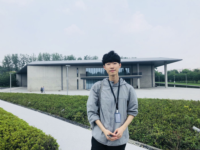I was honoured to attend the Global Young Scientists Summit (GYSS) 2022, which was held virtually this year. The summit featured 20 plenary lectures, 6 panel sessions, small-group informal sessions, a video contest, and networking sessions. These activities covered several fields such as biology, chemistry, physics, medicine, mathematics, and computer science. Twenty-one distinguished scientists, which included recipients of the Nobel Prize, Fields Medal, Millennium Technology Prize, and Turing Award, gave thought-provoking plenary lectures and participated in informative panel discussions.
One of the lectures that impressed me was “Where Neuroscience Meets Computer Science” by Prof. Leslie Valiant, who received the Turing Award in 2010. He elaborated on his ongoing project, which investigates how the brain stores information efficiently. He said one way to try to understand this process is to narrow down the possible solutions the brain might be using to implement this. A light bulb problem was introduced to illustrate the interaction between a cognitive task and its computational difficulty. He then used the example of restaurant recommendations to define symbolic processing; that is, we can remember and connect discrete facts to a whole concept. The key point, he said, is that humans can do this kind of thing on a very large scale every day. Currently, there are no viable theories that explain this mechanism. He discussed some constraints of brain computation and how neurons operate when people look at a specific picture. Two types of random access tasks were then described, one of which was to allocate storage to a new concept. For example, if we know the words “Omicron” and “Variant”, how do we remember the new combination “Omicron Variant”? The second task was to add relationships to represented concepts. For example, if we are told “The Omicron Variant is dangerous”, how do we remember this relationship between “Omicron Variant” and “dangerous”? Finally, he introduced a neuroidal modal of computation to mathematically elucidate the core principles that underlie information processing in biological nervous systems.
Other speakers and participants also inspired me a lot with their brilliant thoughts and dedication. I am very grateful for having been given the valuable opportunity to participate in GYSS 2022 and would like to express my sincere gratitude to the Department of Statistics for the nomination and support.


